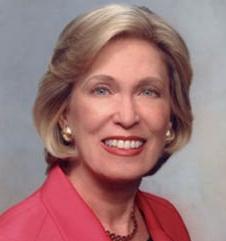As Xi Jinping, 59, and Li Keqiang, 57, will take over; market-driven reforms are anticipated to intensify in China. The majority of the Party and the Chinese people support these reforms. Like President Hu Jintao and Premier Wen Jiabao, Xi and Li will hope to support the market forces and to bridge income polarization caused by the rapid growth of the past decade.
Xi's father, Xi Zhongxun, was a reform-minded Communist leader who was instrumental in the development of the PRC. Supported by Deng Xiaoping, he became the governor of Guangdong where he contributed to the pioneering economic reforms of Shenzhen in the 1980s.
Xi is a strong consensus leader who has been promoted by the Shanghai faction of the Party, known for its market-driven focus, and former President Jiang Zemin. But Hu Jintao and the Communist Youth League (CYL) also support him. Like many other CYL communist leaders, Hu worked in the poorer provinces and regards not just growth, but equity as China’s paramount challenge in the future.
In the next few months, Xi is likely to develop his distinctive policy platform. These policies will focus on structural reforms economically, continued top-down democratization politically, and China's rising global clout internationally.
In an important speech in the Central Party School in March, Xi emphasized the need for the collective responsibility, which he defined as the absence of individual interests among the party members. In the Xi era, the struggle against corruption and private moral hazards may well move to a new level.
Unlike Xi, Li Keqiang is more likely to get his full official mandate next March. President Hu's protégé represents a balancing force, who is likely to follow in the footprints of his precursor Wen Jiabao and focus on equity.
As the new premier, Li will be tested by housing policy. While property markets will continue to play a vital role in the growth of the urbanizing China, Li should both reduce market speculation and oversee the production of 36,000 affordable housing units for ordinary Chinese.
Rising stars
Since the challenges of housing policy require a strong politician, some expected the premier to be the hands-on Wang Qishan, 64, the former mayor of Beijing who has been in charge of the economic track of the U.S.-China Strategic and Economic Dialogue (S&ED).
Some observers expect Wang to become the chairman of the Chinese People's Political Consultative Conference (CPPCC). However, if it is true that he is to become China’s next economic tsar as executive vice-premier and will be given the job of party discipline chief, he could play a vital role as the guardian of party discipline.
In the past few months, anticipation has steadily climbed in Beijing as the old Standing Committee of the Politburo will be replaced by the new one.
Among the rising stars is Wang Yang, 57, former chief of Chongqing and current party chief of Guangdong, where he has supported both market forces and political reforms, while intensifying anti-corruption struggle. However, the chances of a younger generation of liberal reformers may have been affected by an intense internal debate, the Bo Xilai incident, U.S. rebalancing in the region, and the deteriorating international economic environment. These forces favor tough veteran leaders and solid performers.
After the insulation of Bo Xilai in Chongqing, Zhang Dejiang, 65, took over his position in the megacity. Similarly, the new status quo may favor Liu Yunshan, 65, the director of the Party’s propaganda since 2002, as well as Yu Zhengsheng, 67, the party leader of Shanghai, and Tianjin’s “talk less, do more” party chief Zhang Gaoli, 65.
In turn, Liu Yandong, 67, is approaching retirement, but could be promoted as the first female party leader. Li Yuanchao, 62, created his career as the reformer of Jiangsu. Despite his low profile, he has significantly contributed to the internal promotion process in the Party.
The chief of staff Fang Fenghui is another protégé of President Hu. Shaanxi Party secretary Zhao Leji may have an important role heading the personnel transition.
Overall, the leadership transition is driven by a huge turnover. More than 60% at the top of Beijing will be replaced by a younger generation. As big boomers march into the Chinese leadership, governance will grow more professional, more diversified and international.
Toward structural reforms
In the 1980s and 1990s, investment and inflation still increased substantially in the year following the Party Congress. As China has been moving toward market forces, political cycles have been replaced by business cycles. However, senior executives of leading Chinese companies and industries do believe that the Congress is likely to clarify policy platforms, which, in turn, can stabilize growth.
When a year ago, Beijing was pondering the 12th Five-year plan, Xi rendered his support to the acceleration of economic reforms, urging greater determination to “pay even more attention to a top-level design for reform and a long-range plan for reform.”
The model for the ”top-design reforms” has been shaped by economist Liu He, whose team has been working on the new growth model, in the “China 2030” project with the Chinese State Council and the World Bank.
The new model is predicated on a shift from investment-driven growth to consumption, which, in turn, is predicated on the expansion of social security and health services. In the private sector, it means a shift from cost efficiencies toward innovation-driven competitiveness. It also requires sustainable development, reinforcing local governance and an increased momentum in the integration of China into the world economy.
In the course of the next decade, China's relatively wealthier 1st tier megacities will be driven increasingly by consumption, whereas Chinese inland and west will continue to need substantial investment.
As the momentum is increasing for reforms, not everybody is excited about the future. In the megacity of Chongqing, Bo Xilai, who has now been expelled from the Party, used media to build a personal cult, which aimed at the mitigation of three decades of economic reforms.
In his last legacy address, Wen Jiabao criticized Bo Xilai with tough words. He emphasized that market-driven reforms must be accelerated in China. Second, political democratization will occur over time, not in the terms of the West. And third, what matters for China’s future is not economic growth as such, but growth that will benefit the Chinese people.
As Bo Xilai has lost his prominent role in the Party, economic disclosures about Xi Jinping and Wen Jiabao have been released in the West. Many of the deep throats behind the stories oppose structural market reforms.
Growth during transition
When the West was swept by the global recession in fall 2008, China opted for a $590 billion stimulus package, which supported confidence and strengthened the nation’s infrastructure. However, it also gave rise to huge speculative liquidity, which has burdened certain provinces with debt.
China's soft landing eclipsed around January and February, when Beijing moved toward a “mini-stimulus”; a broad array of different fiscal and monetary policies, cuts in interest rates and reserve ratios, infrastructure projects, tax relief, subsidies and investment projects among provinces and state-owned enterprises. Concurrently, deregulation took off in the financial sector.
U.S. stagnation and the Eurozone crisis contributed negatively still in April data, which led Beijing to accelerate the mini-stimulus. The impact has been prominent in the third quarter. Now annual growth is around 8.2-8.5% – as long as local debt will no longer expand.
Further, China's 2012 fiscal budget indicates that the government is about to spend some RMB 4 trillion ($640 bn) in the fourth quarter, through subsidies and investment. That, in turn, will boost economic growth and inject substantial liquidity into the banking system.
As Brussels is coping with increasing headwinds, Washington must tackle the post-election fiscal cliff and Tokyo is struggling with its third lost decade, the Xi-Li duo will seek to protect China from the global crisis, while supporting China’s sustained reforms and integration into the world economy.
Dr. Dan Steinbock is Research Director of International Business at India China and America Institute (USA) and Visiting Fellow at Shanghai Institutes for International Studies (China) and the EU Center (Singapore).


